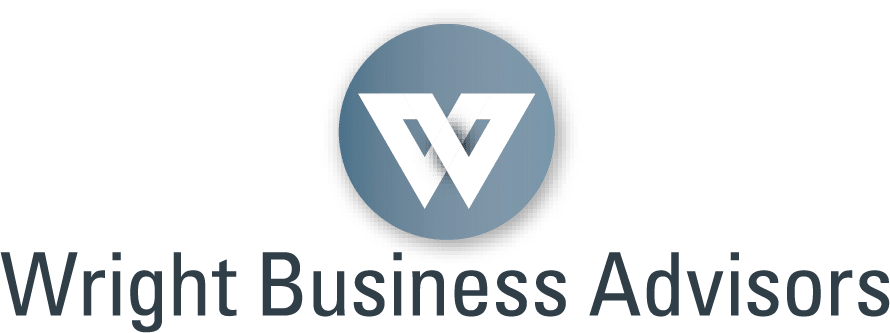- January 22, 2018
- Posted by: 145763077
- Category: Blog

There are several key business value drivers that bring a substantial increase in business value. Some owners are contemplating their exit strategies, while others are not. Regardless if you’re interested in selling now or in the future, it’s important to understand your options as a business owner and what the important business value drivers are when it comes time to earn the maximum profit at the sale of your business. Many business owners are on the fence and are not really sure if now is a good time to sell their business or not. As both a business broker, business coach and business owner who has been on all sides of the transactions and recently sold my own company, I understand what is going through your mind.
You may have more options than you realize and have not weighed all the ramifications of a business transfer to new ownership. Have you ever looked at the future return on your time and financial investment of your business? It is often much more difficult to earn a financial return that surpasses what you are, and will be, earning from your business. Have you considered semi-retirement from your business and hiring a strong General Manager that could be a potential partner or the future owner of your business? Have you considered hiring a seasoned business coach to help you create a business that runs well with or without you?
If you are still convinced that you want to move forward with selling your business, understand that regardless of which path you choose, buyers will pay a premium (that is larger multiples of your discretionary earnings) when your company has important value drivers incorporated in it. Simply put, value drivers increase the ability of the business to grow in the future and reduce the risk of business ownership for a prospective buyer. Nothing is more upsetting to me than seeing sellers leave a lot of money on the table due to the lack of value drivers in their business.
There are some value drivers however that you really cannot control. Besides larger companies, many strategic buyers are looking for a specific industry in a specific geographical location. There are also business types that are more “sexier” than others, such as manufacturing companies are demanding a higher premium than a waste management administration company for instance. Also, there are other qualitative factors affecting value, such as access to capital, level of competition, legal issues, lease/other terms of the sale etc. However, many business owners can and should work on increasing the value of their businesses with value drivers. It is a simple (but not easy) process that I am passionate about helping my clients achieve.
Business Value Drivers
Some of the main drivers of business value that I see as a business broker and that you may be able to control to attract buyers are:
- Increasing and Recurring Revenue and Cash Flow Trend. This is the biggest attraction for most buyers. Buyers do not want to also have to inject a lot of money into supporting cash flow in a business in addition to the money they just invested in buying the business. They want to see a business with positive momentum and not one with decreasing revenues and cash flow. They are also interested in seeing a recurring stream of income and having solid contracts in place. This really drives up the value of a business. Ideally, 75% or more of the company’s sales would be coming from recurring revenue. This is a predictable and stable income that is very likely to continue in the future.
- Strong Systems/Management Team in Place. Experienced buyers all want to see that your business is not reliant upon the owners (owner-dependent) themselves or upon one or two employees or suppliers. Companies with a solid management team in place and that will be staying with the company, earn higher multiples. A critical factor in owning a business that runs with or without the owner is having the right people and systems in place. Buyers want to mitigate risk and the assurance that the management team and key employees will stay with the new owners. Also, creating and measuring standard operating procedures (SOP) performance helps prove to a buyer that the business can sustain its profitability under their ownership. Systems include SOP for generating revenue and controlling expenses. Written strategic plans and operating manuals put buyers at ease. When you can leave your business for up to four weeks at a time, and have everything be fine upon your return, you know you have a business that runs well with or without you.
- Consistent Financial Data. Having a good financial recording process in place with reliable records and reports proving the company’s consistent profitability is important to buyers. The tax returns and the Income Statement should closely resemble one another. CPA’s provide three levels of financial statement services: Compilations, Reviews, and Audits. Although all financial statement services are based on generally accepted accounting principles (GAAP), an audit provides buyers the highest level of assurance on an organization’s financial statements and is also the most expensive statement for CPAs to provide sellers.
- “Scalability”. Buyers really look at the growth potential of a business – especially when they can increase revenue while avoiding substantial cost increases. Scaling a business looks at the capability of the company to handle an increased amount of work or output. They are looking for ways to improve the overall operations of the business and that there is plenty of room for them to grow to meet their expectations. This could be done in a variety of ways, such as duplicating the model in another market or increasing the services provided to the existing customer base. Certain buyers will even consider the capability of the existing people, processes, and equipment that comes with the business. Strategic buyers may see an opportunity to create a synergy between companies by purchasing a business in a space that they are interested in with good growth opportunities even though there may not be many of the other value drivers in place.
- Customer Diversity. Buyers like to see customer diversity and they don’t want to see that “all your eggs are in one basket” where your company is reliant upon any one customer. They typically want to see a broad customer base where no one customer makes up more than about 10 percent of the total revenue to help insulate them from the loss of any single customer.
- Niche Market with High Barriers to Entry. Having a special niche population of customers that you market to make a company more valuable to acquirers. The lower the competition, the less risk to buyers. There are a variety of barriers including regulatory approvals, proprietary information, expensive equipment, intellectual rights, contracts, and complicated systems in place. It’s much more difficult to commoditize their product or service. They often understand what sets them apart from the rest and strongly market their differential advantages.
- Raving Customers. Savvy business investors know how difficult and important customer loyalty and referrals are to a business and they desire a repeat customer base. A solid reputation is often proven by a strong online presence and good online/other reviews, which help increase the value of a business.
- The Management Team (Key Employees) Will Stay with the Company.
- Curb Appeal. The old saying “perception is reality” is correct when it comes to business value. If a buyer sees a nice procedure manual, neat, clean and organized facilities, and modern and properly maintained equipment, they are willing to pay a higher premium for a business.
- Terms of the Sale. The terms of the sale should affect the selling price of a business. For example, the lease terms must be agreed upon, an owner may or may not be willing to carry a note on the sale of the business or property, or may or may not agree to have a junior security interest to the senior lender or agree to an earn-out provision where the seller will receive additional payments based upon the future performance of the business. Since there are tax ramifications that could benefit one party of the other, the purchase price allocation (furniture, fixtures and equipment value, non-competition agreement, and goodwill, etc.) must be negotiated. There are other factors to negotiate, such as a non-solicit, consulting agreement, work-in-process, etc. in addition to the valuation of the assets. Parties should be rewarded for the risk they are accepting.
If you are serious about selling your business or would like to prepare it to sell for a premium later, then take our Business Value Assessment to learn how you can substantially increase the value of your business. I’ll contact you later for a free, no-obligation consultation on your results.
